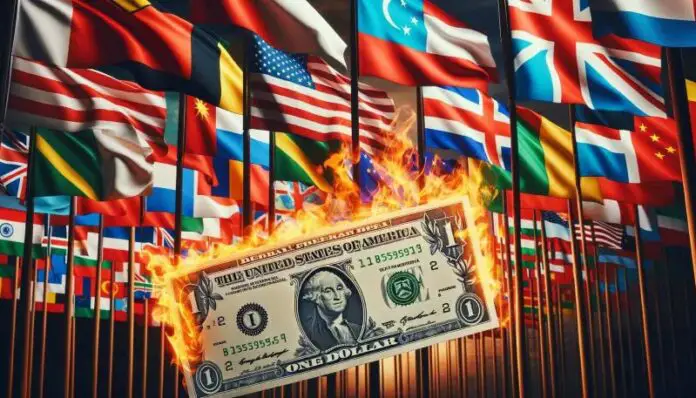In a significant shift away from the long-standing dominance of the US dollar, a growing number of countries are actively working to reduce their reliance on the world’s primary reserve currency. This movement, known as de-dollarization, aims to establish alternative global financial and technical systems, empowering nations to break free from the dollar’s stronghold in international trade.
The trend is not new, but its pace has accelerated in recent years. According to reports, the dollar’s reserve position is deteriorating at an alarming rate, with a decline in the global share of US dollar reserves that was ten times higher than the average over the past two decades last year alone. This has prompted several countries and organizations across the globe to adopt de-dollarization strategies.
Countries Leading the Charge:
1. Argentina: Plans to use the yuan instead of dollars for Chinese imports, following in Brazil’s footsteps.
2. Brazil: Made a deal with China in March 2023 to trade using their respective currencies.
3. Bolivia: Considers employing the yuan as an alternative to the dollar.
4. China: Gradually moving away from US dollar trade and towards the Chinese yuan since 2011.
5. Ghana: Aims to buy oil in gold, shifting from fiat currency.
6. India: Seeks measures to reduce its reliance on dollars to boost its economy, focusing on growing its share in international trade and transforming the rupee into a foreign currency.
7. Iran: Forced by US sanctions to find alternatives, Iran explores using multiple currencies, including the Euro, for foreign trade.
8. Malaysia: Looks for a suitable substitute for dollars in international transactions to bolster its economy due to currency volatility.
9. Russia: Takes steps to bring down the dollar’s influence as part of BRICS efforts.
10. Saudi Arabia: Open to trading in currencies other than the US dollar, announced by Finance Minister Mohammed Al-Jadaan in January 2023.
11. Turkey: Unveils a plan to lessen reliance on dollars in international trade under its president’s leadership.
12. Venezuela: Announced in August 2018 that it would price oil in rubles, euros, yuan, and other currencies.
This shift towards de-dollarization signals a significant change in the global economic landscape, as nations seek greater financial sovereignty and security through alternative currency systems. While some countries are adopting this approach by choice, others are being compelled by circumstances such as sanctions or currency volatility. The implications of this movement are far-reaching and will be closely watched as it continues to unfold.
Source: Watcher Guru






